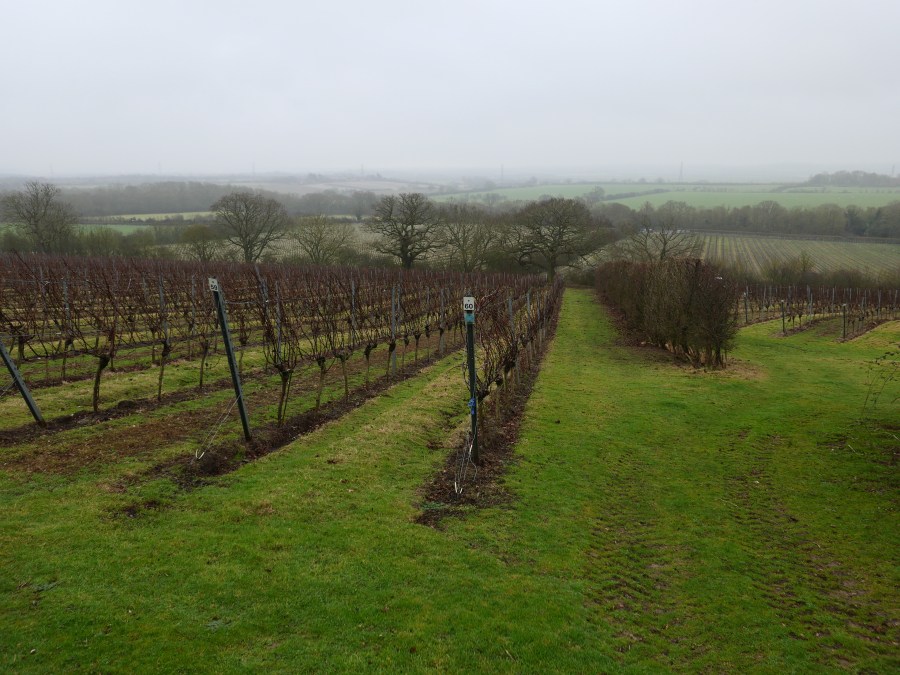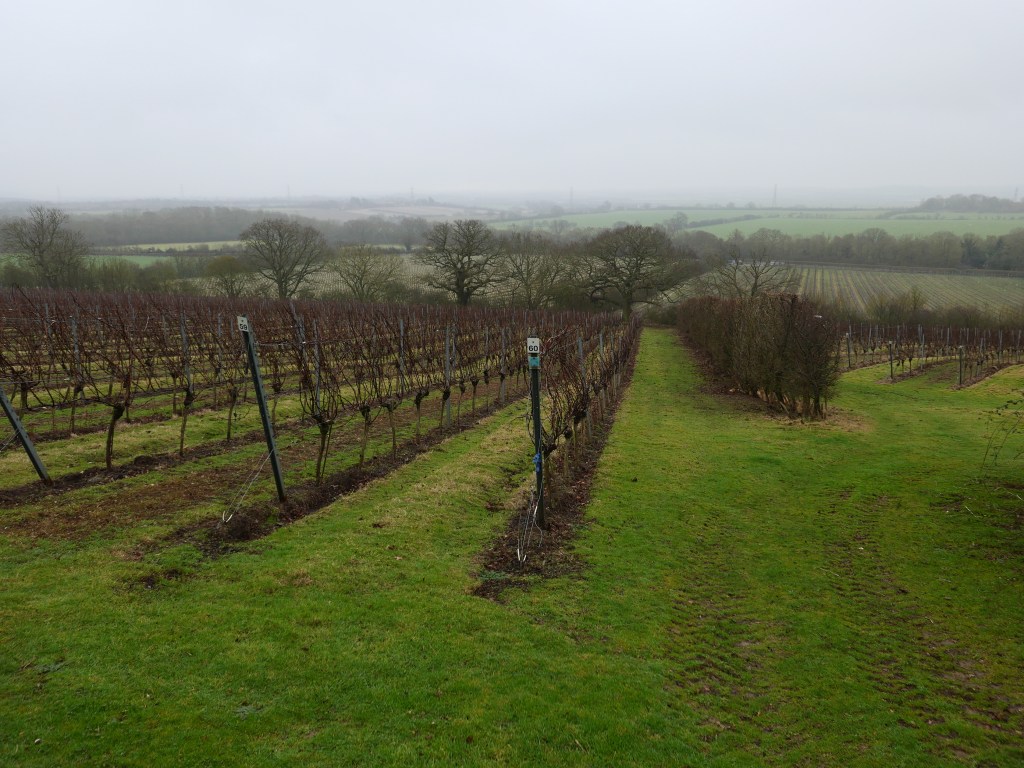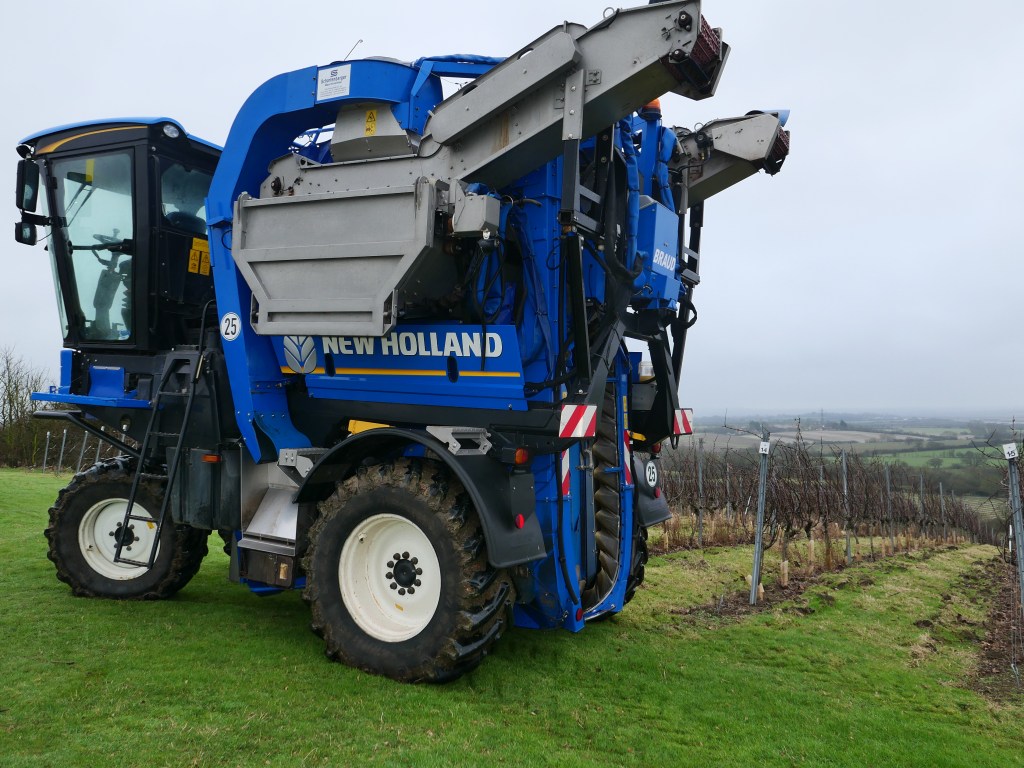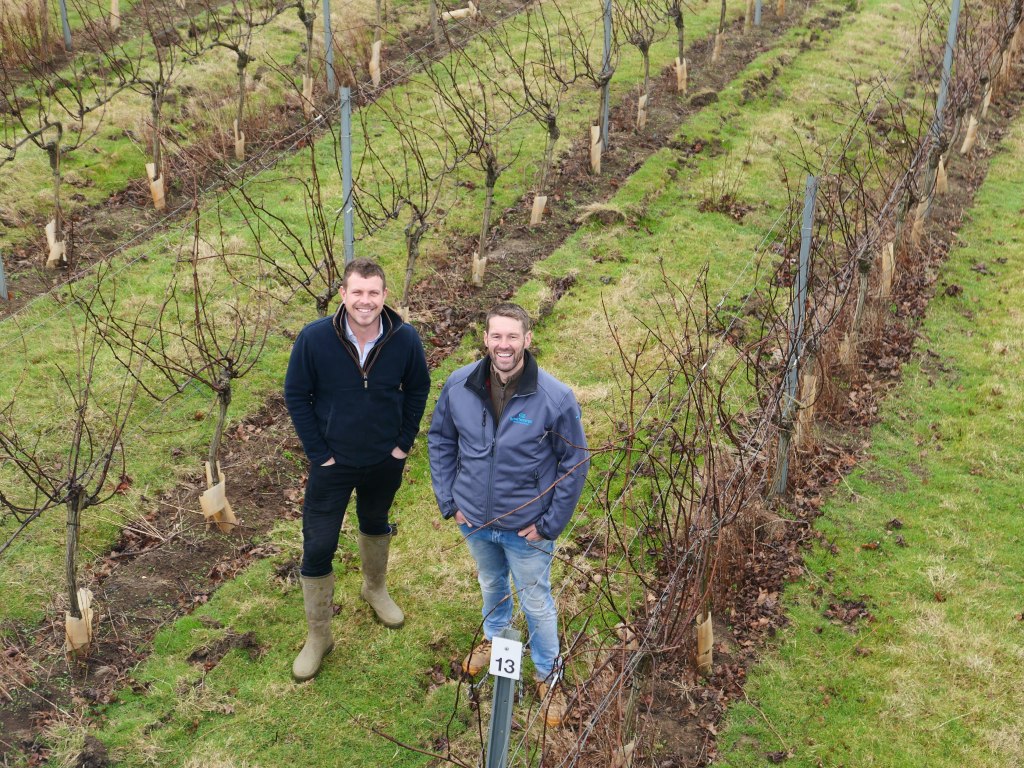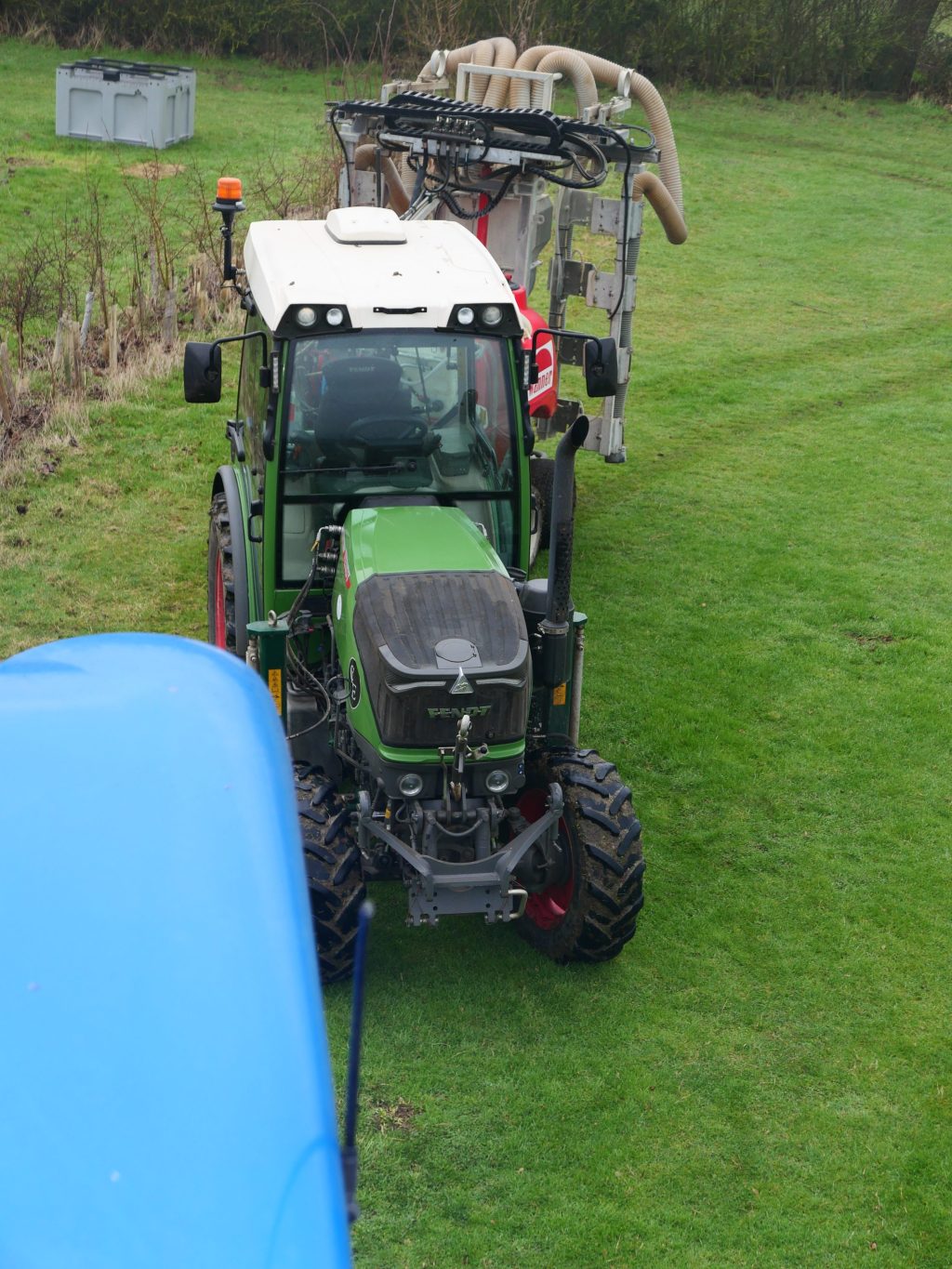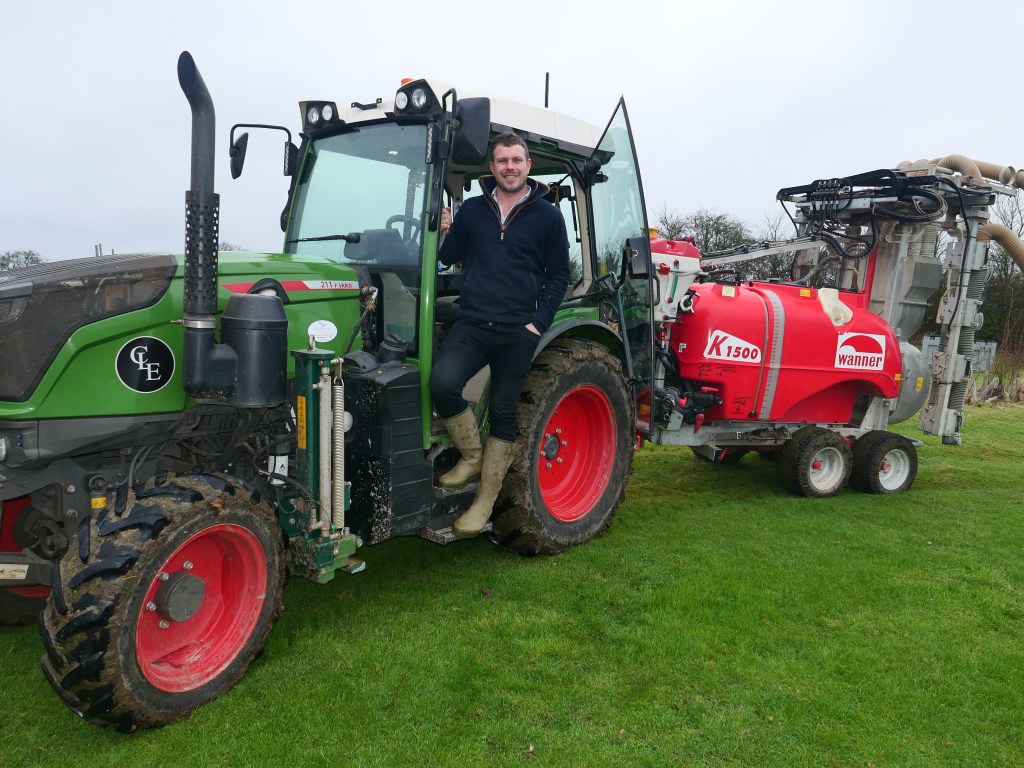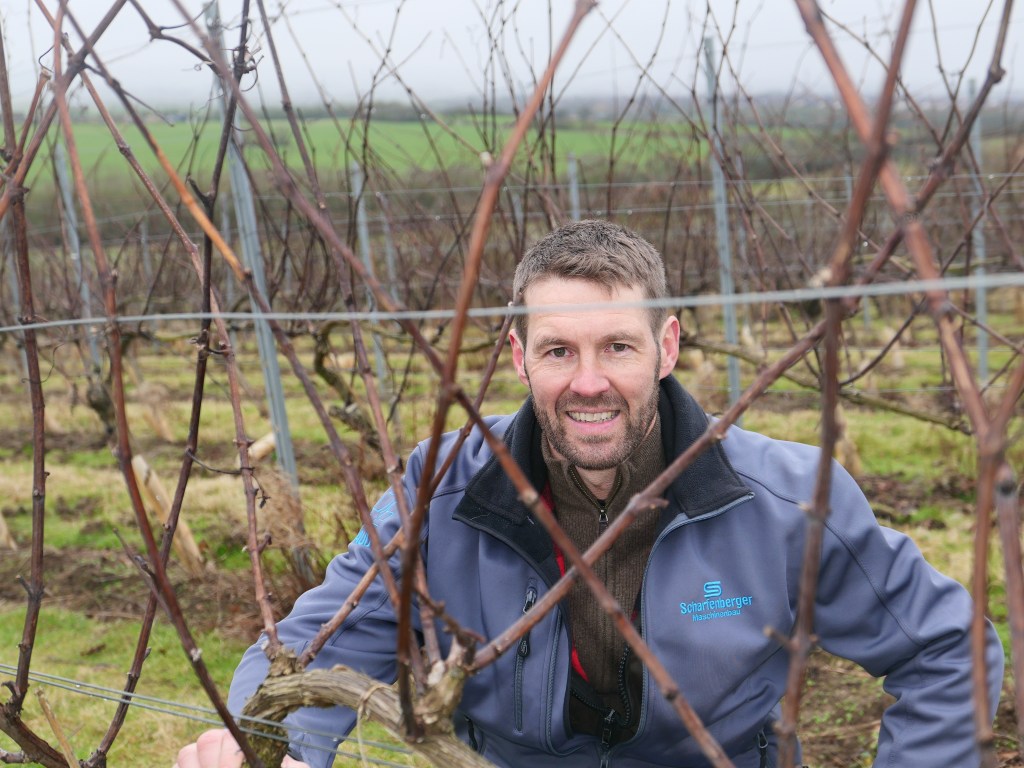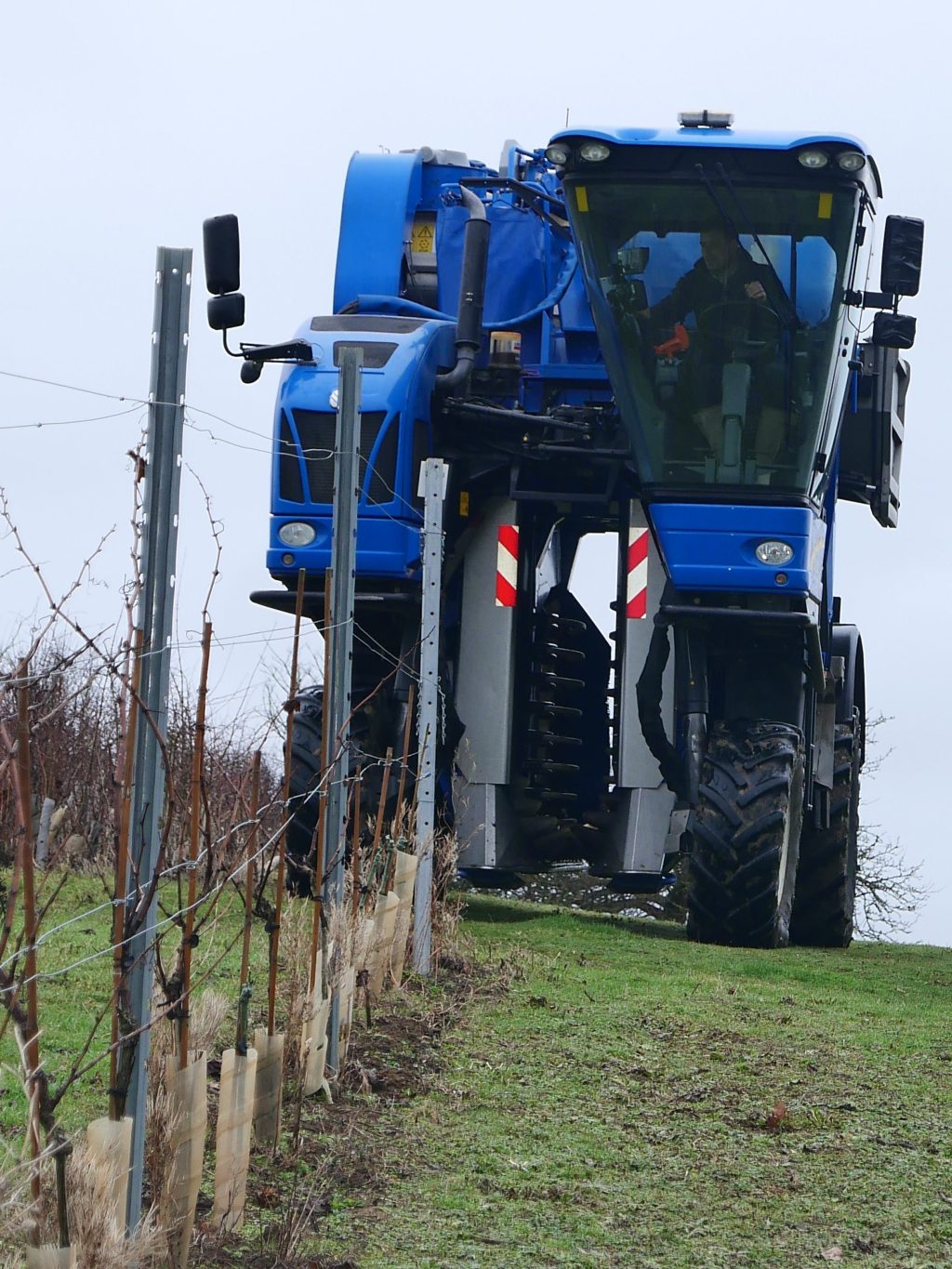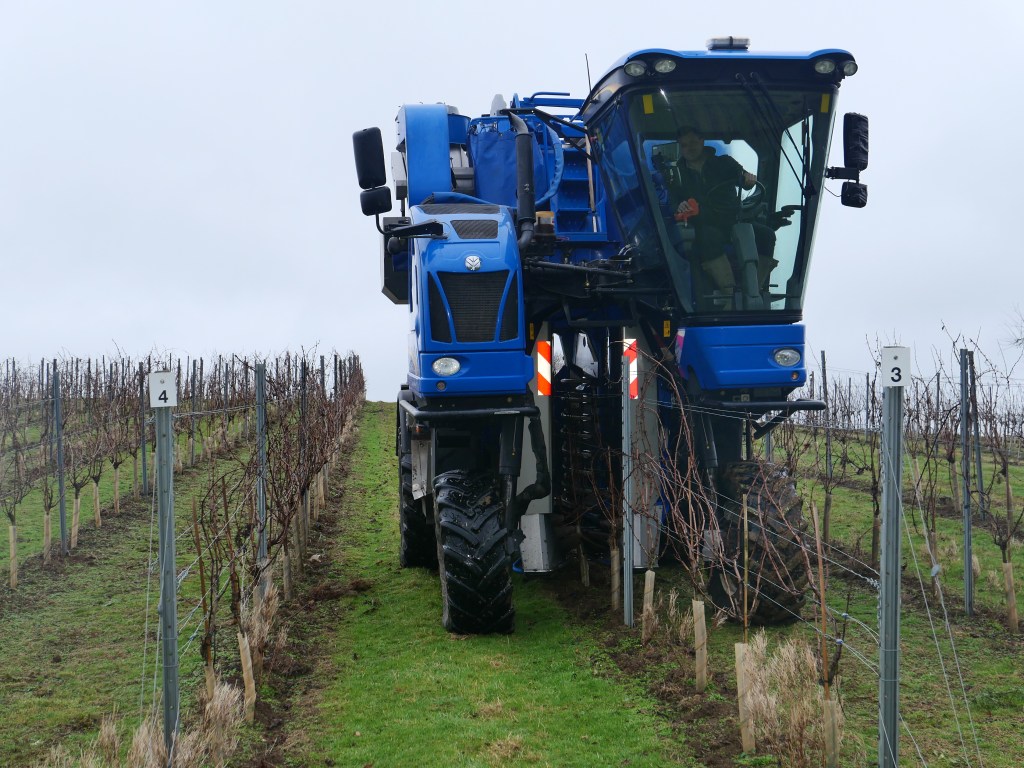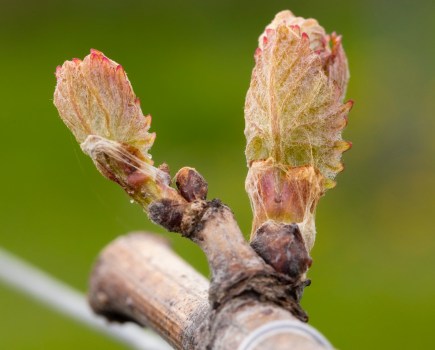Great wine is all about collaboration, whether that’s in the partnership between the grower and the winemaker, the pairing of the right food with the right vintage or simply the joy of sharing a bottle with friends.
Another collaboration, this time between two businesses with considerable synergies, is now helping to support the rise and rise of the Crouch Valley in Essex as one of the foremost grape-growing regions of England.
Just a couple of hours with Duncan McNeill and Michael (‘Mikey’) Hollington is enough to highlight the mutual respect that exists between the two men, who share a belief in the future of English wine in general and in the Crouch Valley in particular.
By combining their skills – Duncan is an experienced viticulturist whose company, McNeill Vineyard Management, or MVM, currently has 400 acres of vines under management across 22 vineyards and Mikey’s Crows Lane Estate Contracting business provides and operates specialist vineyard machinery – they are rapidly becoming a force to be recognised in the region.
It’s a symbiotic partnership which benefits not just their own businesses but the customer. As Duncan pointed out. “I couldn’t focus on delivering viticulture advice without having the machinery back up from Mikey and he clearly also benefits from the collaboration, but above all it means the growers are getting the best possible service from the partnership.”
Crows Lane Estate Contracting – or CLE – was set up in 2022 by Mikey and his mother, Debbie Reid, and followed the establishment of Crows Lane Estate Vineyard at Stow Maries, planted by Duncan, in 2018. Mikey, who has always enjoyed working with agricultural machinery and “grew up driving combines” bought a range of equipment to enable him to look after his family’s vines but now uses that equipment – and more – as MVM’s sole contractor.
The partnership with MVM, which was set up in 2011, is informal, but it has allowed both businesses to grow side by side. As a further spinoff, the two men have joined forces with a third, German
Volker Scheu, to invest in a New Holland Braud 9090L grape harvester which is the sharp end of a third business, South & East Grape Harvesting.
While the Braud is ideal for harvesting ‘standard’ grapes and can do the job at around half the cost of employing manual labour, Duncan is quick to point out that his team still picks the ‘super premium grapes’ – for which the Crouch Valley is becoming so well known – by hand.
Cutting the cost of ‘entry level’ English wines is, though, critical in broadening the market and encouraging the right level of demand for the increasing quantity being produced in this country, he stressed. “In 2023 the UK harvest was enough to make 22 million bottles of wine, and we need to find a home for it all,” he pointed out. “it is important that some English wines become more price competitive as production volumes increase.
“Not everyone is prepared to pay £50, £60 or £70 for a bottle of English wine, but if we can cut the production costs so that entry level wines are coming in at £15, we will start to develop the kind of demand we need to sustain that level of productivity, which is only going to increase,” he said.
“You need an entry level base for the product pyramid. Without a solid base, the pyramid will collapse.”
While keen to see lower cost English wines being produced, both Duncan and Mikey are convinced that the Crouch Valley is in the right place to nurture a new generation of really great still wines, an opinion that is founded on good evidence.
“In 2018, James Lambert, the managing director of Lyme Bay Wines, told me I should recognise that this area had the potential to produce really great wines and make that my absolute focus. He felt that the Crouch Valley could produce world-class still wines from Burgundian varieties such as Pinot Noir and Chardonnay, as well as great sparkling wines.”
Two years earlier, in 2016, the region had grown its first grapes to hit 90 Oeschle (Oe) points, at that time a real achievement and opening up the potential of making a wine with 12.5% alcohol without having to chaptalise.
In 2018, the year James highlighted its potential, the Crouch Valley produced grapes that hit 98 Oe, giving a potential alcohol percentage of 13.5. “In 2020, given how hot the summer was, I started to think we might grow a Pinot Noir that would hit 100,” Duncan said.
In the event, the harvest topped out at a remarkable 106 Oe – and it was Mikey and his family’s Crows Lane Estate Vineyard, planted just two years earlier, that achieved that record-breaking result. “Lyme Bay Wines turned that harvest into what the press referred to as the ‘killer Pinot’,” Mikey recalled. At 13.5% it rivalled the alcohol levels of wines produced in Central Otago or Oregon.
“It’s interesting to note that just a few years ago we were aiming to hit 90 Oe,” Duncan remarked. “Now we consider that the baseline for Crouch Valley premium still wines.”
While playing his own part in taking English wine to the next level, Duncan is quick to pay tribute to the Crouch Valley pioneers, particularly Martins Lane Estate, Danbury Ridge Wine Estate and New Hall Vineyard in Maldon, where he worked for a time after gaining experience on vineyards in New Zealand and then Germany.
“If New Hall hadn’t been planted in 1969, the Crouch Valley wouldn’t look like it does today,” he said. “It was a pioneering move that led to this area becoming established as the ideal location for growing some of the ripest grapes in the country.”
Duncan moved back to England – and to Essex – in 2006 after studying viticulture in New Zealand and working as an apprentice in Germany as he realised he “had a better chance of establishing myself in the wine industry in this country than in Germany”. He was accompanied by German wife Nadine, whom he had met in Australia and is now co-director and company secretary.
In 2010 he joined FAST as a viticulture consultant, but “after a year in which I didn’t pick a single grape” he realised that his ‘hands-on’ nature was calling him in a different direction, and so McNeill Vineyard Management was born, initially taking on two clients, Martins Lane Estate and Crouch Valley Vineyard.
The business grew as well as vines on a sunny, south-facing slope, and MVM has planted new vines every year since then, with the numbers in the Crouch Valley rising exponentially since the “game-changing” 2018 harvest. Alongside the Pinot Noir and Chardonnay grapes that did well even in 2021, the region has seen plantings of Pinot Gris and Sauvignon Blanc, with MVM able to look after the whole operation, from bare field to harvest.
Duncan is quick to recognise the support provided by others, not just CLE but his own team, including operations manager Umut Yesil and labour supervisor Rachel Leishman. Rachel heads up an in-house team of 22 manual labourers, including some home-grown employees, who work for MVM all year around.
In another collaborative move, MVM will at the end of this year be supplying a team to help with turkey plucking at a local farm in November, the quietest month for work in the vineyards.
Mikey Hollington, who was born in 1990 in Stow Maries, where his family runs two farming businesses, Caleb Rayner Ltd and Hollington Farms, studied agriculture at nearby Writtle University College before working on the family farm and around the world.
While he gained a vast amount of experience in arable and livestock farming and developed a love of machinery, he knew very little about viticulture until 2016, when Duncan was planting vines at Upper Martins Lane, within eyesight of the family farm.
That inspired his father Simon, Mikey himself and family members Debbie Reid and Millie Hurrell to jointly invest in Crows Lane Estate Vineyard, planting the eight acres that gave rise to the 106 Oe grapes two years later. Mikey bought specialist machinery to look after the vineyard, but the advice came from Duncan, who planted another 16 acres for the family in 2020.
The two men got on well, and as Duncan found himself increasingly busy with the husbandry, he realised that the way forward was to take on CLE as his sole contractor for the machinery side of the business. It was the start of a collaboration that is already proving successful and has seen CLE invest in an impressive stable of kit.
The company now runs four Fendt 211F tractors, supplied by
R W Crawford, four Wanner sprayers, ERO canopy management equipment, a Geertech compost spreader, Perfect-Van Wamel mowers and a range of inter-row and intervine cultivation equipment.
His machinery operator and pruner James Pegram is ‘loaned out’ to MVM between November and April to help train new manual workers, while Lucy Wright has joined the team as an apprentice machinery operator, studying at Plumpton College while learning practical skills from her time with CLE.
South & East Grape Harvesting, meanwhile, is going from strength to strength as growers struggling to recruit labour are realising how efficient the Braud is, cutting the cost of manual picking by about 50%.
It can also improve the wine, too. “For grapes such as Bacchus, machine harvesting can be a good thing as it allows the juice to be in contact with the broken skins for longer, releasing beneficial thiols,” Duncan explained. “The Braud can help produce better wine at a lower cost, which is what the industry needs to sustain the growth in vineyards.”
The 2023 harvest was the first at which the Braud was used, and it proved to be a head-turner. “We picked up a lot of unplanned work during the season,” said Duncan. “People saw it in action and booked us in then and there. Given the issues with labour at the moment, bringing in a machine can be the difference between picking and not picking. You can’t just keep planting vines without thinking about how you are going to get the grapes picked.”
It may have been an unfamiliar sight this season, but it’s unlikely to be long before more of the bright blue harvesters appear on the slopes of the Crouch Valley.
“At a guess there are fewer than ten in this country at the moment,” Mikey hazarded. “There are probably half a dozen in every village in some grape-growing regions in Germany.”
- Michael Hollington and Duncan McNeill
- Michael Hollington
- Duncan McNeill

